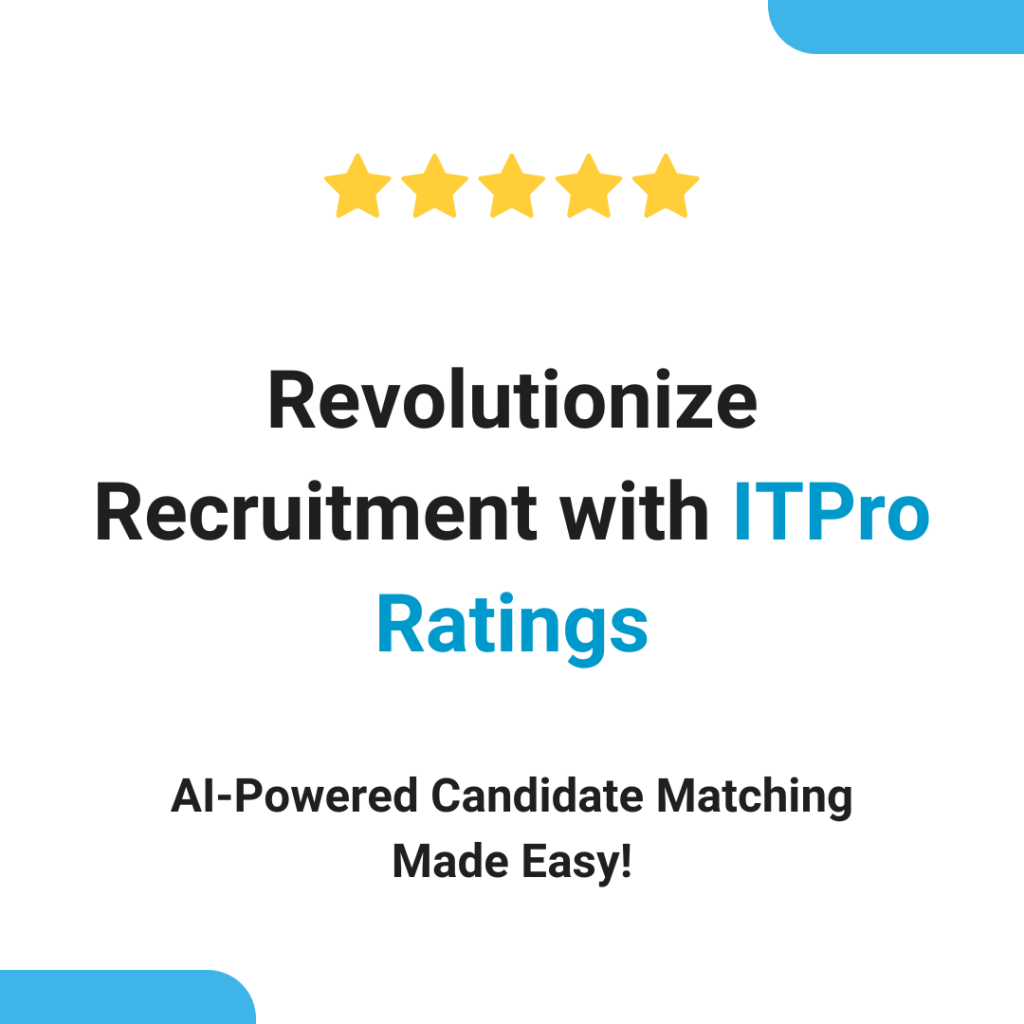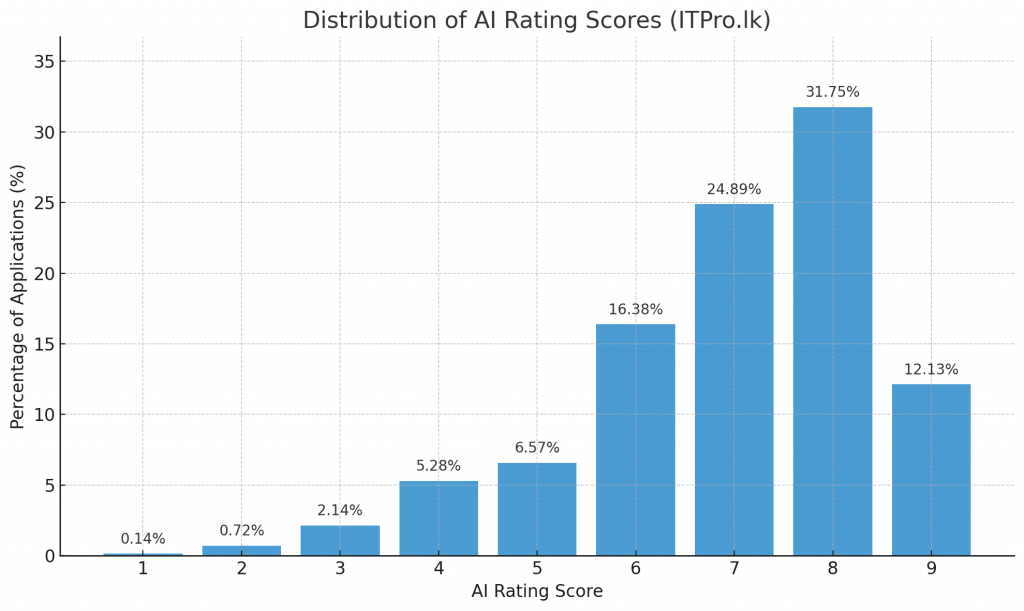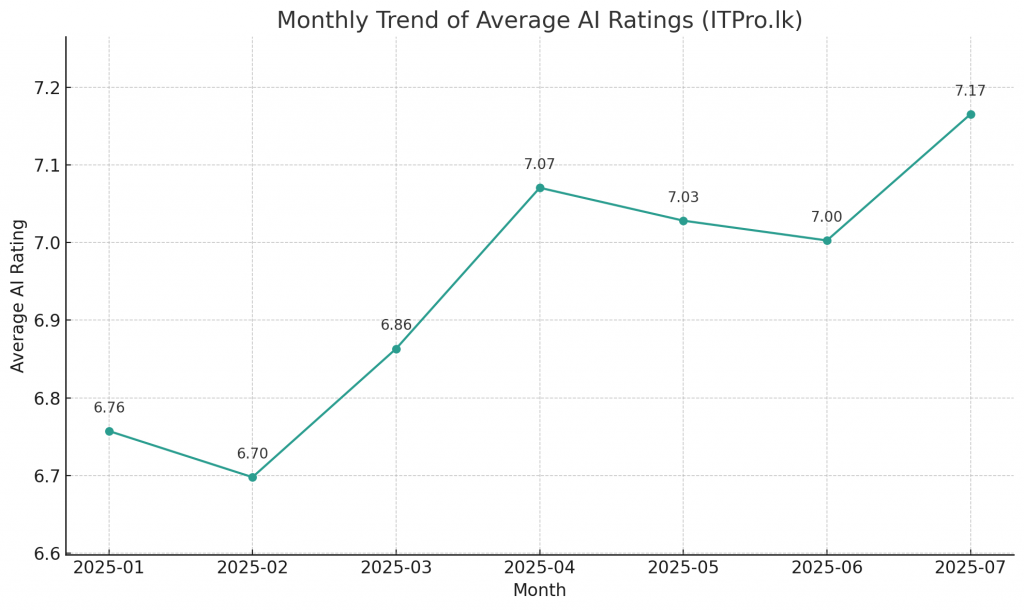Originally posted on Medium, can read it here: Go to Medium article

In January this year, we introduced ITPro Ratings, a feature that automatically scores each job application submitted through our platform. Since then, the number of rated applications has grown steadily alongside the rising popularity of ITPro.lk. We’ve now crossed an exciting milestone of over 20,000 applications rated by our AI.
How Does ITPro Ratings Work?
Recruiters can view a list of applicants and their CVs directly from their dashboard. Each application is given a rating out of 10, automatically generated by our AI. This score is calculated by comparing the content of the candidate’s CV with the job advertisement. In addition to this number, it gives recruiters an AI-powered insight into how well an application matches the advertised role.
Real Benefits?
ITPro is a high-visibility marketplace for tech job ads in Sri Lanka. A single job post can attract hundreds of applications. If you’re a busy recruiter receiving, say, 500 CVs for a single role, manually reviewing each one may not be realistic. ITPro Ratings allows you to sort applications by relevance, helping you focus first on the ones that are most aligned with your requirements.
That said, ITPro Ratings does not attempt to evaluate candidate competency or technical skills. Skill evaluation is a nuanced and context-specific challenge that cannot be fully solved with a one-size-fits-all solution.
This raises a valid question: Is it justifiable to shortlist candidates based purely on the language used in their CVs? Let us know your thoughts in the comments!
Human Judgment Comes First
Recruitment is fundamentally a human process built on relationships and context. Automation can help, but only to a point. That’s why we’ve designed ITPro Ratings to support, not replace, human decisions.
We understand that job seekers worry their applications might be rejected without ever being seen by a human. On ITPro.lk, applications are always presented to recruiters in chronological order, and the system never discards or auto-filters any applications. The rating is simply an additional insight, not a decision-making tool.
What the Data Says
Here is the chart showing the percentage distribution of AI rating scores. You can clearly see that most applications received a rating between 6 and 8, with 8 being the most common score. The internet already has plenty of CV guides, templates, and services, which has helped to raise this standard.

Here’s the chart showing the monthly trend of average AI ratings from January to July 2025. You can observe a general upward trend, with July 2025 having the highest average rating so far.

User Feedback So Far
We measure feature adoption using standard analytics, page hits, dashboard usage, and feature interactions. Based on current data, usage is moderate. Recruiters are exploring the AI feature, but the core value of ITPro remains in giving your job ads wide visibility, not necessarily in AI-driven automation.
Are There Downsides?
We’ve noticed a subtle trend: some candidates are now focusing more on polishing their CVs to align with AI evaluations, sometimes at the expense of actually improving their skills. (Related post: Polishing Your CV, is Really a Solution?)
We’re not making conclusions yet. We just observing. The full impact of AI in recruitment is still unfolding.
Final Thoughts
AI can support recruitment, but it shouldn’t define it. Even with all the algorithms, automation, and analytics, gut feeling and human intuition though imperfect, still play a powerful role in hiring decisions. It’s that blend of data and human judgment that creates meaningful outcomes.

A multifaceted professional known for diverse interests and contributions in various fields, including management, technology, education and entrepreneurship. Also the founder of ITPro.lk, bringing a unique perspective and industry knowledge to writing.

